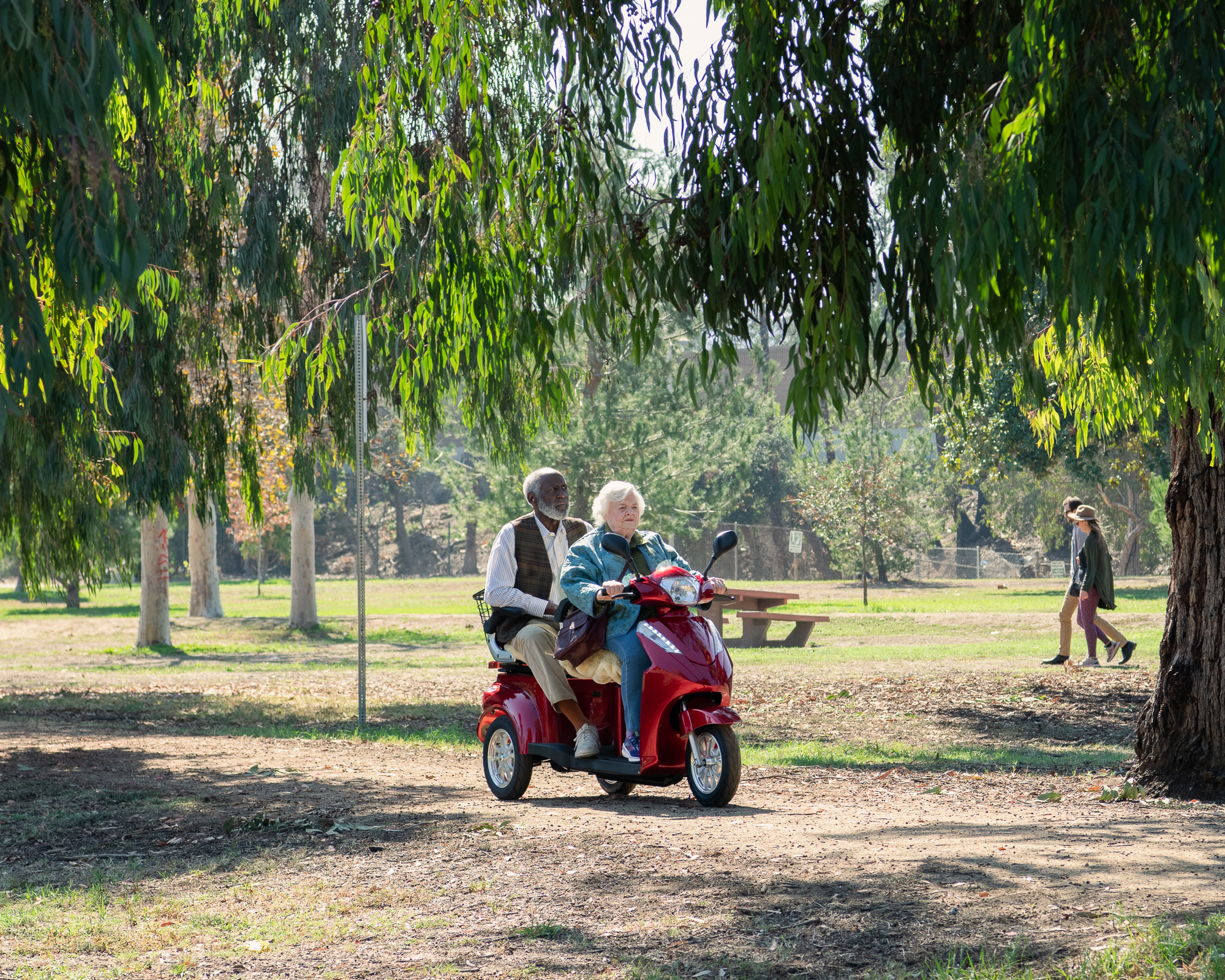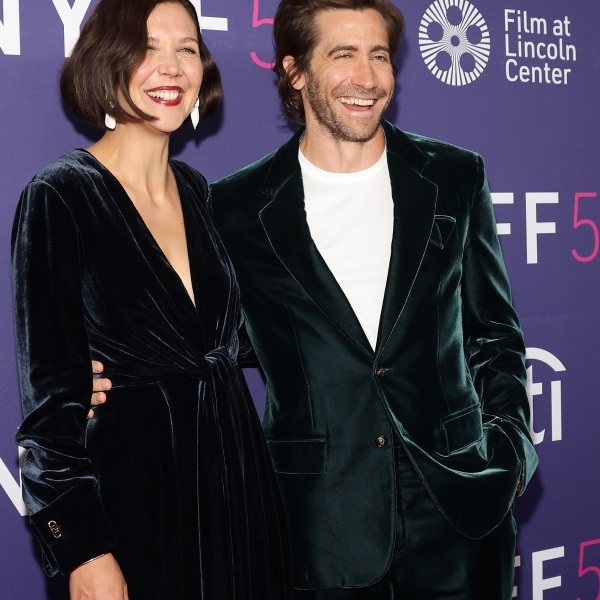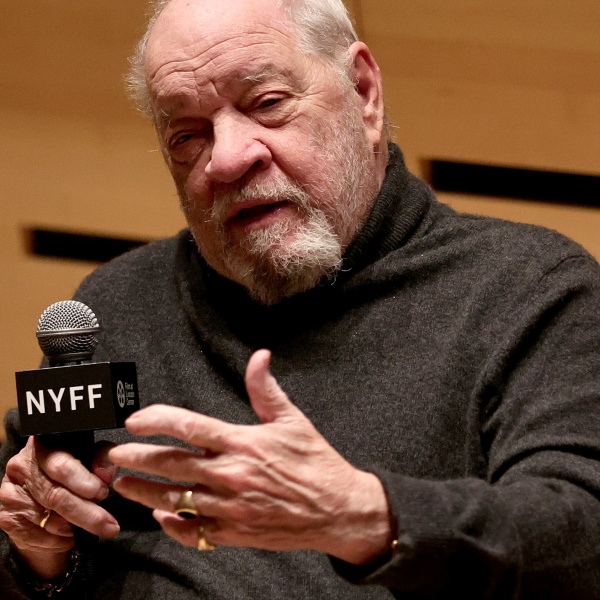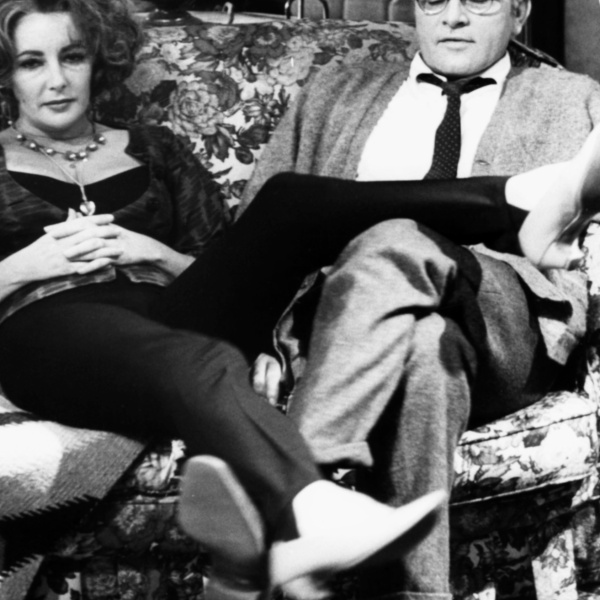Director Josh Margolin’s “Thelma” is a revenge movie unlike any other. Its basic plot — a woman heads out to seek payback from the perpetrators of a phone scam that ripped her off — might sound like a gender-reversed riff on a Liam Neeson vehicle. What makes “Thelma” unique is the age of its protagonist: the title character, played by June Squibb, is a grandmother in her 90s, and her method of hot pursuit is not a souped-up sports car or motorcycle but a scooter borrowed from a friend at the local retirement home. While there’s undeniable humor inherent in the premise and “Thelma” has plenty of laughs, what really makes it work is that the filmmakers take Thelma’s plight utterly seriously — her situation is no joking matter, and by the end of the movie, the audience is as invested in her success as in the outcome of “Taken” or any of its sequels.
Playing the action straight was an important point of agreement between Margolin and stunt coordinator Ryan Sturz. “After I read the script and did my own breakdown of the action, I took that to Josh and tried to get his vision for it,” Sturz told IndieWire. “My questions for him were, ‘How do you see the action? Do you want to play for slapstick comedy, or are we playing this straight?’ I was pleased to find that we had a very similar take, which was, let’s just play it straight for what it is. It’s action. It’s somebody riding in traffic on a scooter with cars going wild behind her.” According to Margolin, the key was making the action feel like an organic outgrowth of the story so that it would never feel implausible or excessively comical; any comedy would emerge naturally from the fact that the action is on such a smaller scale than a typical Hollywood revenge thriller.
“We always wanted things to feel real as grounded as they could be in the context of a movie that starts in kind of real life dramedy space and escalates into something a little more genre,” Margolin told IndieWire, “but hopefully always motivated by character so that it never feels like we’re leaping into parody or poking fun, as opposed to just doing it on a shrunken scale.” Because the action was so character-oriented, 93-year-old star Squibb was intent on performing as many of her own stunts as possible and refused to be held back by her age. “And certain things that might not be considered stunts on other movies — like running up the stairs — became stunts on this movie just by virtue of the fact that our lead was 93,” Margolin said. To Sturz’s relief, however, Squibb was completely capable of performing a great deal of the action. “I have rarely had an actor who was so focused on the job,” he said.

A lot of keeping Squibb safe came down to surrounding her with professional stunt people who could make the action around her look dangerous while she rode safely in the middle of it; for the street scenes, for example, Sturz put stunt drivers in cars to whirl around Squibb at seemingly high speeds. Sturz made recommendations for scenes that might require a double, and Squibb had a stunt double on set for the whole shoot, ready to step in anytime she was needed — and to help Squibb perform her own stunts when she wasn’t. Sturz feels that having that kind of assistance is good practice for any set. “Anytime you have action, it’s a good policy,” he said. “I might get pulled away to set up a shot, and of course, Josh is the busiest person on set, so to have a dedicated stunt double who can guide the actor through things or offer emotional support is really helpful and often undervalued.”
Like Sturz, Margolin was initially conservative in his demands of Squibb, but he quickly realized her physical ability far exceeded his expectations of what she could do. “She was a dancer for many years,” Margolin said. “She was doing Pilates leading up to the movie. Obviously I knew her chops as an actress, but she is a much more physical performer than I realized. Until you’re on set, you just don’t know.” The fact that Squibb became so excited about the scooter and the opportunity to reinvent herself as an action star felt appropriate given the theme of the film. “It’s the ethos of the movie: this person is bucking the odds and doing something that we never thought she could.” If anything, Squibb was a little too committed at times. “There were times where we had to use a double, and I had to say to her, ‘June, I’m very sorry, but you know we have to finish this movie,’” Sturz said. “‘So we need to keep you alive.’”








